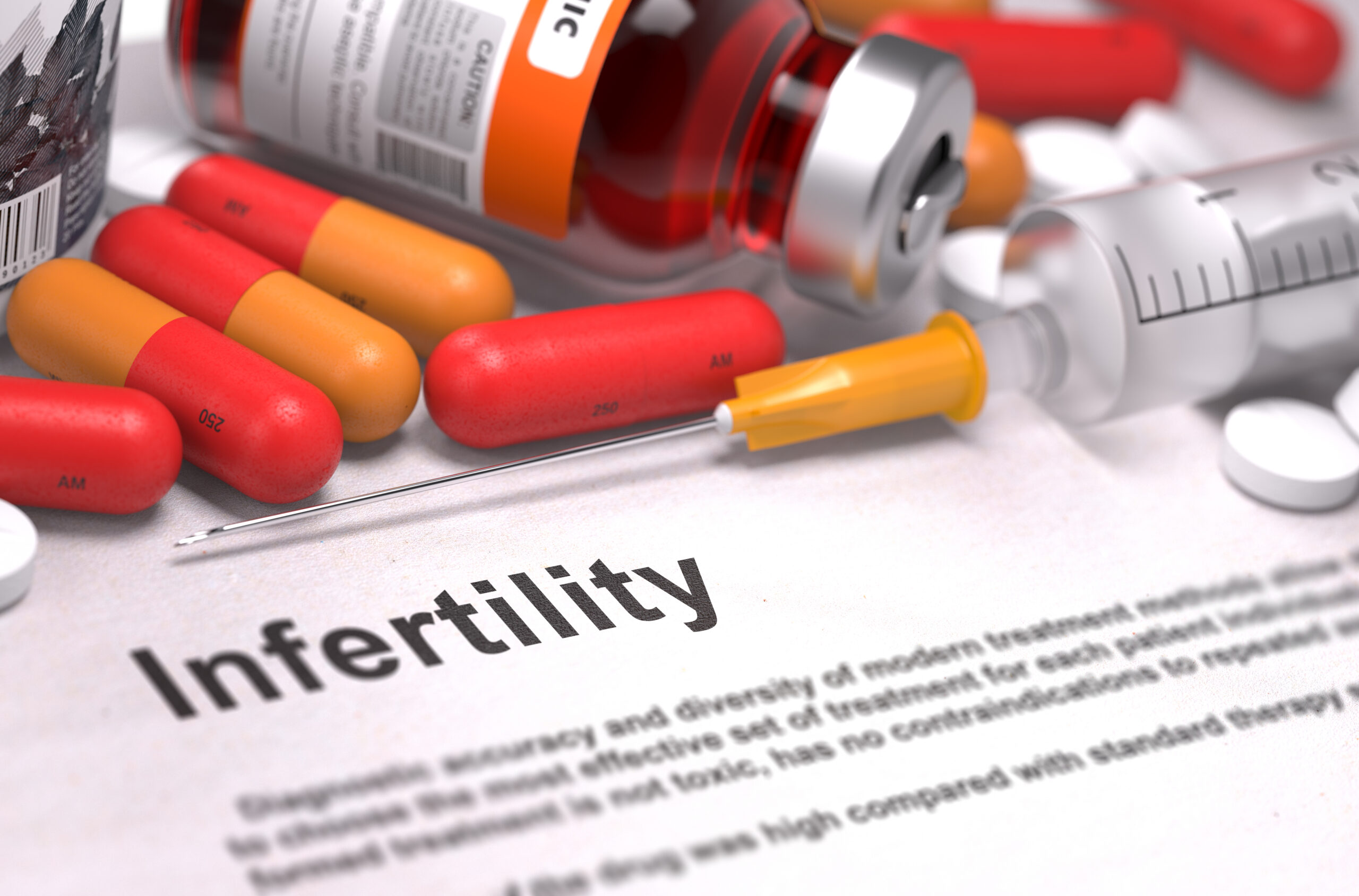For couples seeking treatment for infertility, medication can often be the first step towards increasing chances of pregnancy, especially for women who do not ovulate or ovulate irregularly. During ovulation, the release of an egg from a woman’s ovary allows for fertilization of the egg by sperm. If ovulation doesn’t occur, this can make it more difficult to become pregnant. In this case, oral or injectable medications can be used to induce ovulation by stimulating the release of eggs from the ovaries.
oral medications.
To induce ovulation, physicians typically initially prescribe an oral medication, such as clomiphene citrate or letrozole.
Clomiphene citrate (brand names such as Clomid or Serophene) has been one of the most widely used treatments to enhance fertility over the past 40 years due to its convenient administration in pill form and minimal side effects. Clomiphene itself is a weak, estrogen-like hormone that works to increase the levels of follicle stimulating hormone (FSH) and luteinizing hormone (LH) in the body. By stimulating the hypothalamus and pituitary glands to increase these hormone levels, clomiphene can increase the chances that a follicle in the ovary will grow, and that ovulation can occur. Clomiphene treatment is usually started on day 3, 4, or 5 of the menstrual cycle, with one 50 mg pill per day for five days.
Although costs of infertility treatments vary by state and insurance coverage, clomiphene is relatively inexpensive and is therefore utilized before moving onto more expensive treatments, like IVF. Clomiphene is also used alongside intrauterine insemination when infertility is unexplained.
Letrozole is another oral medication that can be used to treat infertility in women who have polycystic ovary syndrome (PCOS). Letrozole is an aromatase inhibitor, which means that it blocks the enzyme that works to produce the hormone estrogen in the body. By lowering the amount of estrogen that circulates in the body, this triggers a hormonal chain of events that results in a surge of follicle stimulating hormone and the growth of follicles in the ovaries, which eventually promotes ovulation.
injectable medications.
If oral medications are not effective in inducing ovulation, the next step could be to stimulate the ovaries by directly injecting gonadotropins into a woman’s body. Gonadotropins can also be recommended for women who do ovulate normally, but want to improve their chances of pregnancy during treatments of in vitro fertilization, intrauterine insemination, or natural intercourse.
Gonadotropins are the hormones, follicle stimulating hormone (FSH) and luteinizing hormone (LH), that are the key players in causing a follicle in the ovary to grow and release an egg. Depending on the woman’s hormone levels and menstrual patterns, either FSH or both FSH and LH can be recommended. By directly increasing the levels of these hormones in the bloodstream, gonadotropin injections increase the development of follicles in the ovaries and improve chances of ovulation. Gonadotropin injections are more expensive than oral medications, require more monitoring during treatment, and increase the risk of multiple pregnancies.
male infertility medications.
Some medications can also be used to treat infertility in men, depending on the cause of infertility. For the small percentage of men whose infertility is caused by problems with their hypothalamus and pituitary gland, gonadotropin treatment may be appropriate. This treatment involves injections of human chorionic gonadotropin (hCG), often combined with recombinant human follicle-stimulating hormone (rhFSH). By acting like the hormones FSH and LH, gonadotropin treatment acts on the Sertoli and Leydig cells of the testes to stimulate and support sperm production, and therefore increase fertility in men.
This treatment has a high success rate for men with hypothalamic or pituitary issues such as hypogonadotropic hypogonadism (HH), although the cost of gonadotropin treatment is relatively high and often not covered by insurance.
success rates and conclusions.
Whether the treatment is administered through pills or injections, ovulation induction can be quite successful for women depending on their age, diagnosis, and duration of infertility. For women, ovulation induction has been shown to increase pregnancy rates by 10% to 20% per cycle, and may even restore normal fertility rates of up to 25% if the woman was experiencing certain ovulation disorders. Ovulation induction with gonadotropins in conjunction with intrauterine insemination also has a high success rate in most cases.
It’s important to remember that medication is only one of the many possible paths towards successfully having a healthy baby. Schedule an appointment at one of our clinics to speak with a professional about which path is right for you.
related articles
- How Does Birth Control Affect Fertility?If you’ve been on birth control for a while...


